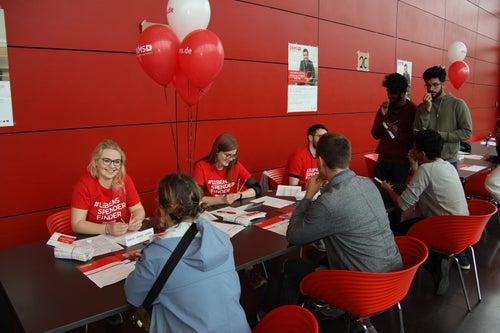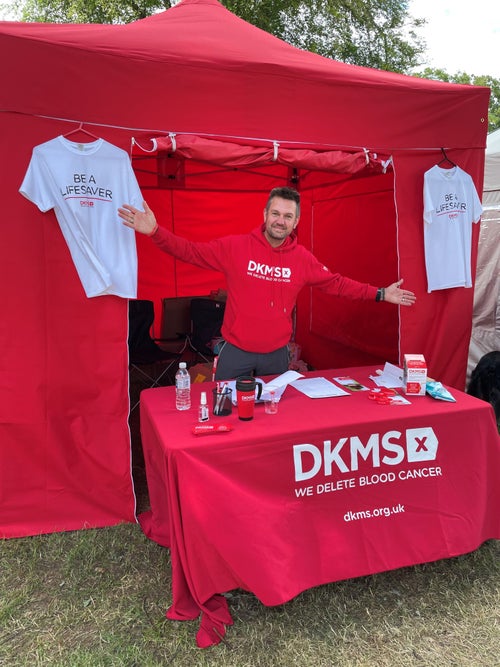
A letter from a lifesaver
Why does the anonymity period exist?
Due to an anonymity period of at least two years, contact may only take place anonymously by letter or email.
The anonymity period applies in the UK and most countries in the world. During the first two years after a blood stem cell donation takes place, the donor and patient are generally not allowed to meet in person. There are important reasons for this, for example:
- During this time, the patient is in a situation that takes a lot of physical and emotional strength. It is important for him or her to concentrate calmly on recovery.
- Sometimes, a patient will need a second stem cell donation within the first two years. By remaining anonymous, it ensures that both the donor and patient are in a fair position, with no additional pressure applied to either party.
Anonymous correspondence
In order to guarantee compliance with the anonymity period, DKMS acts as the intermediary for anonymous correspondence. We forward letters you would like to send to the patient via the responsible transplant clinic.
Please be sure to include your donor number in anonymous correspondence, as this is the only way we can allocate your letter accordingly. Your letter to the patient will be proofread by a DKMS staff member. We are obliged to delete all references that endanger anonymity and ask for your understanding in doing this. This includes
- your name
- initials
- place of residence or
- similar details that allow conclusions to be drawn about your identity.
If 'your' stem cell recipient or 'your' stem cell donor is being treated abroad, please write your letter in English. If you have any questions, please do not hesitate to contact us.
Waiting for a reply
Donors may be waiting for a reply from their patient which is delayed or does not come.
Please understand that the patient may need time because he or she may still be ill or simply do not wish to be contacted. Just as contacting the patient is a personal, individual decision for you, it is also a personal decision for the recipient of your stem cells.
We know from experience that many patients only react to the donor's letter after some time. Often they only want to get in touch when their state of health has stabilised and they can report on their progress in a positive way.


